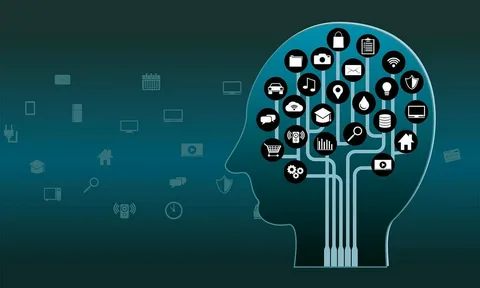In today’s fast-paced world, technology is not just a part of our daily lives; it’s the backbone of our global economy. But what exactly is the role of technology in economic development? How does it shape the way we work, live, and think about the future? Let’s dive into an engaging journey through the digital age, uncovering the profound effects of technology on the economy.
Let’s embark on this enlightening journey, unpacking the myriad ways technology shapes our economy and our lives.
The Catalyst of Innovation

In the realm of economics, innovation is the lifeblood that fuels growth and prosperity. Technology acts as a catalyst, sparking new ideas, solutions, and industries that previously existed only in the realm of science fiction. Imagine the economy as a vast ocean, and technology as the wind in its sails, propelling it forward towards uncharted territories.
Digitalization and Economic Growth
Digitalization has transformed the traditional economic models, enabling businesses to operate more efficiently and on a global scale. From startups in Silicon Valley to ma-and-pa shops using online platforms, technology democratizes access to markets and resources.
Automation and Labor Markets
While automation has stirred fears of job displacement, it also opens up opportunities for new roles and industries. It’s a complex dance between man and machine, where adaptation and reskilling become key to economic resilience.
The Green Technology Revolution
As the world grapples with climate change, green technologies offer a beacon of hope. They represent not just a moral imperative but an economic opportunity – a chance to invest in a sustainable future while creating jobs and driving innovation.
E-commerce: Rewriting the Rules of Retail
E-commerce has upended the retail industry, offering convenience and a wider selection for consumers, while also posing challenges for traditional retailers. It’s a vivid illustration of technology’s disruptive power, reshaping market dynamics and consumer behavior.
FinTech: Finance at the Speed of Light
The FinTech revolution has made financial services more accessible and efficient. From mobile banking to blockchain, these innovations are not just about technology but about reimagining the very essence of finance.
The Gig Economy and Freelance Revolution
The rise of the gig economy reflects a shift towards flexibility and independence in the workforce. Technology platforms enable individuals to offer their skills directly to businesses and consumers, challenging the traditional employment model.
Globalization and Technology
Technology is a driving force behind globalization, connecting markets and cultures in a digital ecosystem. It has made the world smaller and the economy more interconnected, with both opportunities and challenges for businesses and workers alike.
The Challenges of Technological Advancements

With great power comes great responsibility. The rapid pace of technological change presents challenges, from privacy concerns to the digital divide. Addressing these issues is crucial for ensuring that the benefits of technology are shared widely.
Bridging the Digital Divide
The digital divide separates those who have access to technology and those who do not. Bridging this gap is essential for inclusive economic growth, ensuring that everyone can participate in the digital economy.
Technology, Education, and Human Capital
Investing in education and skills training is critical in the age of technology. It prepares individuals for the jobs of the future, fostering a workforce that is adaptable, innovative, and ready for the challenges ahead.
Future Trends: AI and Beyond
Looking to the future, artificial intelligence (AI) and emerging technologies promise to further transform the economy. From autonomous vehicles to smart cities, the potential for innovation is boundless, offering new avenues for growth and development.
Conclusion: Embracing the Digital Transformation
As we navigate through the digital age, embracing technological change is not optional; it’s essential for economic vitality and human progress. By understanding and leveraging technology’s impact on the economy, we can unlock new possibilities, overcome challenges, and shape a brighter future for all.
FAQs
1. What is the impact of technology on job creation?
Technology both displaces and creates jobs, often leading to the emergence of new industries and roles that require new skills and adaptability.
2. How does technology contribute to economic growth?
Technology drives economic growth by enhancing productivity, enabling innovation, and creating new business models and markets.
3. What challenges does technology pose to the economy?
Challenges include job displacement due to automation, privacy and security concerns, and the digital divide.
4. How can we address the digital divide?
Investing in digital infrastructure, promoting digital literacy, and ensuring affordable access to technology are key strategies.
5. What role does education play in the technology-driven economy?
Education is crucial for equipping individuals with the skills and knowledge needed to thrive in a rapidly evolving technological landscape.

